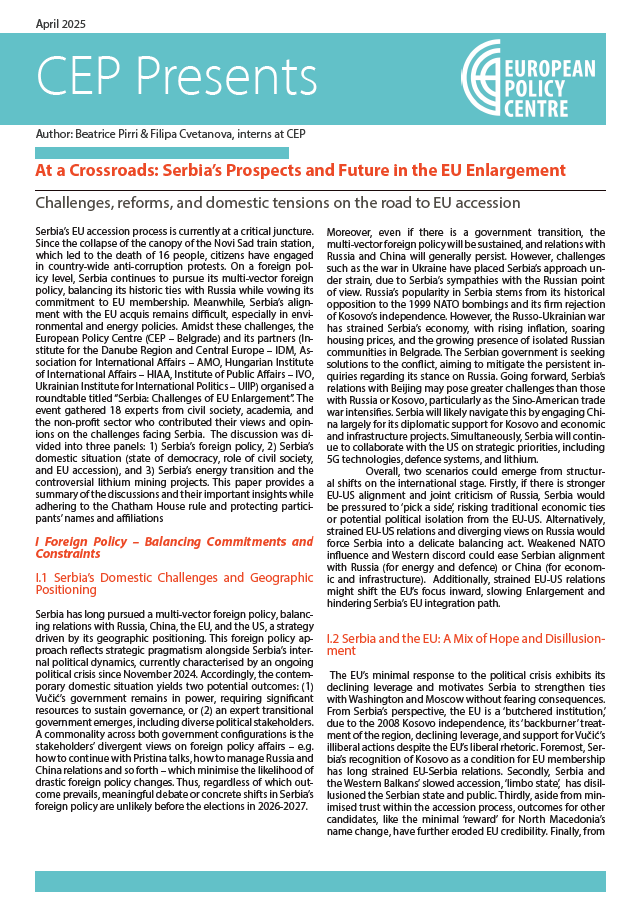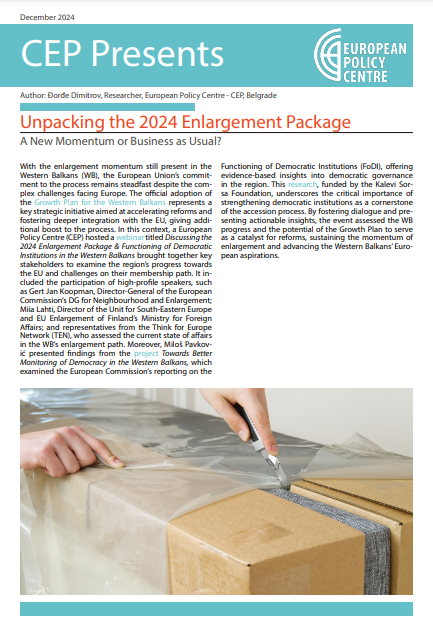Headquarters: Svetog Nauma 7, 11000
Office address: Đorđa Vajferta 13, 11000
Phone:: +381 11 4529 323
The beginning of this year promised to reset the sluggish dynamics of Serbia’s EU accession path. Following the EU’s endorsement of the revised enlargement methodology, however, the outbreak of the COVID-19 pandemic has shifted the focus of the relationship between Serbia and the EU to economic recovery and questions of solidarity. Hence, the long-awaited EU-Western Balkans Summit which took place on 6 May 2020 has also adjusted its format and declaration to respond to these unprecedented times.
How well has Serbia adjusted? The COVID-19 crisis shed light on the fragile state of Serbian democracy, which became particularly visible when the authorities introduced a state of emergency and adopted stringent and out-of-proportion measures to fight the pandemic. To make matters worse, during this period the latest Freedom House Report came out, in which Serbia was no longer classified as a “semi-consolidated democracy”, but rather as a “hybrid regime”. As Serbia geared up for the June 2020 parliamentary elections, tensions grew even greater, especially as a large part of the opposition opted for the strategy of boycotting the election.
In order to better understand the challenges of the post-pandemic EU accession process, the European Policy Centre – CEP has discussed the current situation and the road ahead with prominent domestic and foreign stakeholders. On 13 May 2020, CEP hosted an online, closed-door discussion panel titled “Serbia’s COVID-19 diplomacy and the outcomes of the Zagreb Summit: Déja vu or crucial milestone on the path to EU accession?” The following represents an analysis of key elements brought up by discussants at the event.
_________________________________________
Photo: Flickr/ EU2020HR


